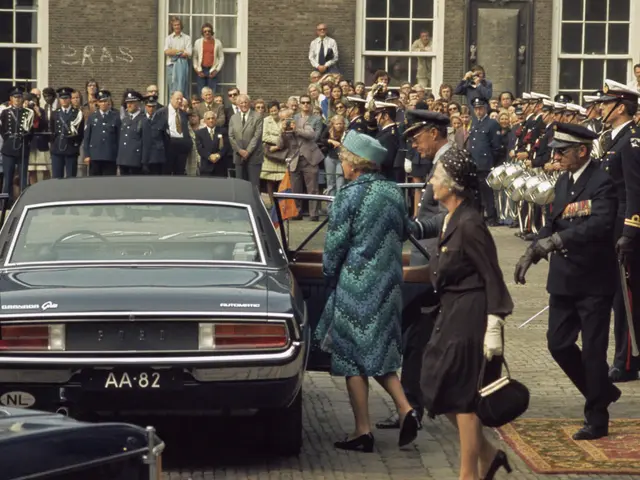Governor of New Jersey plans for a 25% uniform levy on all betting and casino activities
Unyielding Storm in the Garden State
Gov. Phil Murphy's fresh budget proposal has left the gambling industry shaking in its boots, rattling the cages of online gambling and sports betting sectors. Murphy's ingenious idea? Impose a whopping 25% blanket tax on both sports gambling and casinos, a stark hike from the previous 13% and 15% respectively.
However, this tax hike isn't sitting well with the bigwigs. The sector vehemently opposes the proposal, cautioning about the potential repercussions. This isn't an isolated incident; Louisiana has also been contemplating similar ideas.
The Sports Betting Alliance (SBA), a powerful alliance representing the titans of the industry - like BetMGM, Fanatics Sportsbook, FanDuel, and DraftKings - has expressed its disapproval. The SBA emphasizes the economic implications of casinos and gambling companies on the state, employing thousands and generating hefty revenues for the government.
The proposal could dent the sector's competitive edge and disadvantage companies vis-à-vis the unregulated and offshore markets, the SBA warns. Interestingly, many offshore operators have faced a direct assault in New Jersey, with several bowing out under the imminent threat of being targeted by the US Department of Justice.
One of the vocal opponents of the tax hike is Resorts Casino Hotel President and Casino Association of New Jersey President, Mark Giannantonio. He argues that the tax increase could destabilize Atlantic City's gaming and tourism industry, posing a severe threat to the industry's workforce.
Ironically, taxing the gambling sector more has become a national trend. Mississippi, Maryland, Ohio, Pennsylvania, and Michigan have all tinkered with the idea, aiming to boost state revenues. Massachusetts is eyeing the introduction of iGaming but also pondering a potential tax increase.
The industry's response has been unanimous - heightened gambling taxes could hinder the long-term competitiveness of the market, potentially causing job losses, wage depressions, and ceding ground to offshore and black markets.
State-By-State Tax Squeeze
Mississippi has targeted land-based casinos, proposing a hike from 8% to 12%. Meanwhile, Ohio Governor, Mike DeWine, is gunning for a double whammy, advocating for a second consecutive year tax hike - from the current 20% to an eye-watering 40%, if he gets his way.
Time will tell if stakeholders' grim predictions come to pass. One thing is sure, though - taxes in gambling are on the rise across the United States.
Image credit: our website News
Insights:
- High gambling taxes can dampen the profitability of operators, potentially impairing their ability to invest in marketing and customer retention.
- Market competition may be undermined if bettors are driven towards illicit markets, where tax liabilities are nonexistent.
- Differing state tax rates can create uneven playing fields, affecting operators across states.
- High taxes could lead operators to prioritize low-tax states, potentially shifting market dynamics.
- Bettor behavior might be influenced by higher taxes, possibly resulting in a decrease in betting volume as consumers seek better value elsewhere.
- If legal operators are less competitive due to high taxes, bettors may flock to illicit markets, further eroding the legal market's share.
- Many states heavily rely on gaming taxes for revenue, which may lead them to resist lowering taxes despite potential impacts on market competitiveness.
- There's an ongoing discussion about reforming federal and state sports betting taxes to ensure the legal markets remain attractive to both operators and bettors.
The proposed 25% tax on sports gambling and casinos in New Jersey, as part of Gov. Phil Murphy's budget plan, has raised concerns among industry giants like BetMGM, Fanatics Sportsbook, FanDuel, DraftKings, and the Sports Betting Alliance. These entities argue that such a tax increase could disadvantage companies competing against unregulated and offshore markets, denting the sector's competitive edge.
A heightened gambling tax could potentially hinder the long-term competitiveness of the market, leading to job losses, wage depressions, and ceding ground to offshore and black markets, as warned by several opponents, including Resorts Casino Hotel President, Mark Giannantonio.








